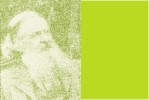Maria
de Lourdes Bacha
mlbacha@ig.com.br
Universidade Mackenzie - Brazil
REALISM AND PRAGMATICISM: THE ROLE PLAYED BY WOULD BE'S IN THE JUSTIFICATION OF INDUCTION IN PEIRCE'S WORK
ABSTRACT
The main objective of this text is to discuss the role played by the "would-be's"
in the justification of induction in Peirce´s work. Its hypothesis
refers to the relation between pragmaticism and realism, because the meaning
of reality itself consists in the "would-be's", that are conditionals
referring to probability and actuality. These conditionals take the form
"if an experiment E would occur in circumstances C, the observable
result would be R", and they are fundamental to the validation of induction.
The reality of the general is the reality of the "would-be's",
so to assert that a law positively exists is to assert that it will operate
in the future, even though only conditionally. The rationale of induction
is related to what Peirce understands as experimental verification. The
"would-be's" in the long run refer to the Peircean notion of habit,
so that the essential character of the inductions is that it infers the
would-be of the concrete singular. By establishing the necessary relation
between the general and the particular, which is the support of pragmatism,
it warrants the condition of possibility of the inductive argument.
KEYWORDS: Realism, Pragmaticism, Induction, Would-be's.
Center
for Pragmatism Studies
Philosophy Graduate Program
Departament of Philosophy
Pontifical Catholic University of São Paulo - Brazil


